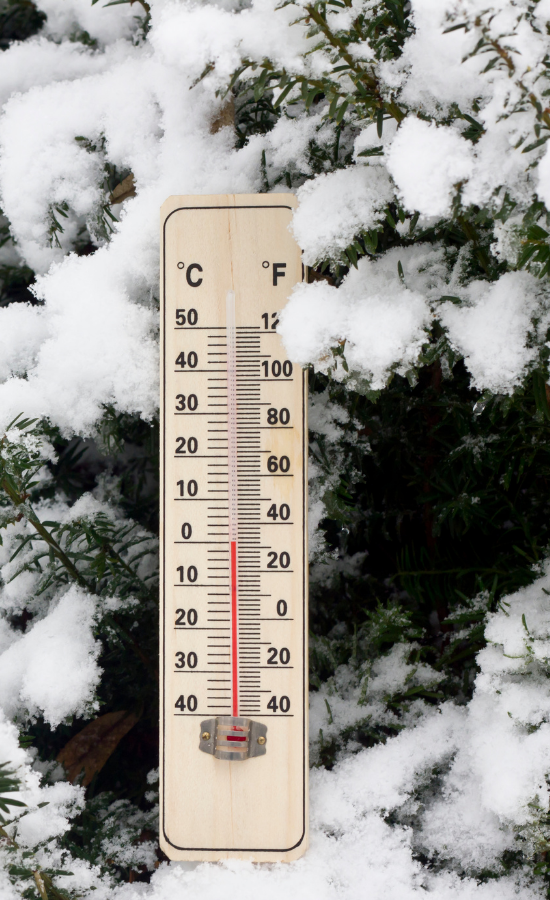Why we are more prone to getting sick in the winter?

Tech Support Team
Colds appear more prevalent when it is cold out. However, in terms of infectious illnesses, it is the germs that make us sick, not cold weather itself. We have to come in contact with rhinoviruses to catch a cold and we need to be infected with influenza viruses to contract the flu. Rhinoviruses peak in spring and fall, and influenza viruses peak in the winter.
There are many reasons why we are more likely to get sick in the winter months:
COLD TEMPERATURES
Cold weather may help some germs prosper. Research from the National Institute of Health suggests that in cold temperatures, flu viruses are more stable; the outer shell of flu virus particles get tougher and more hardy so they survive longer. Low humidity also helps the virus particles remain in the air because the viruses float in the air in small respiratory droplets. When the air is humid, those droplets pick up water, grow larger and fall to the ground.
The cold air also makes it harder for the hairs and mucus in our noses to protect us from germs. The dryness can thicken the mucus and clog the cilia that sweep mucus from our nasal cavity into the back of the throat. Some research suggests that both the cold air from outdoors as well as the dry air from indoors may play a role in protecting the aerosol droplets we sneeze and cough into the air, allowing them to spread more easily from one sick person to another. Add to that the confined spaces with air heating systems that recirculate the air from those who have the virus which causes the cold and it’s a perfect recipe.
GENE ACTIVITY
Researchers have found the seasons affect gene activity. A recent study found that up to a quarter of our DNA actually changes with the seasons; during the Winter months our bodies increase the levels of many of the genes linked with inflammation, triggering the signs of swelling and discomfort that our bodies use to protect us from colds and the flu.
Similar seasonal changes occur in various components of the immune system. A further study found gene expression in red blood cells shifted with the seasons. In the summer, a different set of genes are more highly expressed, including some that help regulate our blood sugar, potentially curbing cravings and helping us burn off excess fat.
Researchers looking at 1,000 people from six different countries studied people’s genes and how they changed over time according to their location and exposure to sunlight. They found that in Europe, the expression of inflammatory genes got ramped up during the Winter months. But in Gambia, where there is virtually no Winter, these inflammatory genes were amplified in the rainy months, when mosquito populations are at their peak and the risk of malaria is the highest.


BOOST YOUR HEALTH DURING THESE COLDER MONTHS
- Wash hands — The number one way to stop the spread of germs. Experts recommend washing hands every few hours and in particular after using the toilet, before meals and after using the keyboard at work etc.
- Keep exercising – Research has shown that regular exercise strengthens our immune system so it can fight off bacterial and viral infections. When our blood is pumping, immune cells circulate through our body more quickly helping to seek and destroy infections. This boost only lasts for a few hours, so exercise needs to be regular for long-term effects.
- Eat well – Various foods, herbs and spices help to reduce inflammation, and boost the immune system e.g. turmeric, garlic and omega-3 fatty acids. Dark leafy greens and red and yellow vegetables are all high in antioxidants too.
- Supplements – Boost your health during these colder months
- Vitamin A – Essential for mucous membrane health. Cod liver oil is a good source of vitamin A.
- Vitamin C – Important for supporting the health of innate immune cells such as phagocytes.
- Zinc – Is involved in immune cell recruitment and function, systemic inflammation, is an antioxidant, and may have antiviral properties with respect to the common cold.
- Stay hydrated – Adequate water will also help make mucous membranes, including those in your sinuses, more resistant to bacteria.
- Clean up winter mould – Mould can trigger nasal congestion, sneezing, coughing, wheezing, respiratory infections and worsen asthma and allergic conditions. Spring cleaning in Autumn may help your health.
Share:
Related Posts

Why Would I Test Positive To Foods On A Dietary Antigen Test That I Don’t Eat?
Written by Precision Point Diagnostics | 2025 True food allergies are when the body develops antibodies against a particular food, or a related food. Patients

Mitochondria: The Overlooked Link in the Gut-Brain Axis
Written by Dr Sarah Daglis | 2025 The gut-brain axis is well-established, but there’s more to this dynamic relationship than meets the eye. A vital

Unlocking Respiratory Resilience Through Functional Medicine
Article written by Dr Michelle Clark Naturopathic Doctor Clinical Education Manager, FxMed Published 1 September 2024 People take supplements to improve or optimize their health.

AHCC: Unlocking the Immune Intelligence of Shiitake Mycelia
Article written by Jessica Sanders BSc. (Psy), Dip Nat, Dip Med Herb Technical Projects, FxMed Published 1 September 2024 People take supplements to improve or

Life After Weight Loss Meds
Kathi Head, ND February 20, 2025 You would have to have been spending glorious hours lying on the beach on a desert island not to

